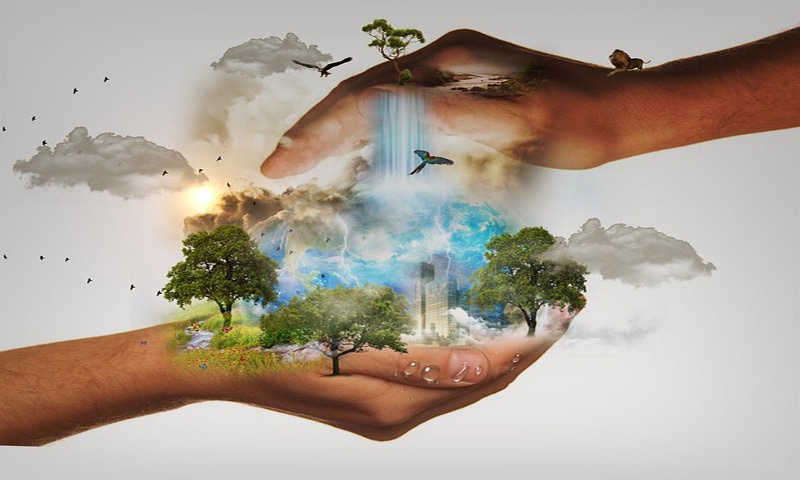You can’t have your planet and eat it too!
Everybody loves money. I do, you do, the corporates do – that is pretty much why everything happens in this world. That said, money is no fun unless you can spend it. And if, a few decades down the line, our planet simply refuses to support human life, what are we even doing? As Emmanuel Macron memorably remarked, “there is no Planet B.”
Too slowly, but surely, the reality is dawning on us and although climate change is subject to endless debate, there is no denying the fact that the planet is getting warmer and in a few decades, may cease to be habitable.
Although the environment has become a major issue since the late seventies, very little has changed on the ground. Plastic continues to litter land and the oceans, fossil fuels to pump toxins into the atmosphere and there has been little or no improvement in greenhouse gas emissions. All our natural resources continue to be tainted by humanity’s need to mutate natural substances into artificial, toxic, non-biodegradable ones (otherwise known as manufacturing). Now, one of the biggest purveyors of plastic has taken the initiative to reduce the damage a bit.

American Express (Amex) are embarking on an initiative to make their cards out of recycled plastic gathered from the oceans. In this initiative, Amex are partnering with Parley, an organisation dedicated to safeguard the world’s oceans and the card is expected to be available within 12 months. This is just part of the Amex’s war on plastic usage. Ultimately they plan to completely make cards with recycled plastic and reduce plastics in their airport lounges and operations.
Similarly, Ikea plan to reduce their packaging waste by using cardboard packaging as drawing board. They have also developed the Ikea Toybox app and by following the simple instructions, children can convert any piece of cardboard into something new. Once virtually assembled, the toy can be ‘played’ with through a phone’s camera and/or reassembled into something else.

McDonald’s, having given up on the whole ‘health’ gig due to obvious reasons, are now making their operations more environmentally friendly by using more efficient appliances. They are also trying to source their meat through more sustainable and cleaner sources.
Wal-Mart has put into force a strict policy to cut off suppliers whose manufacturing, processing and distribution methods contribute to carbon emissions. Wal-Mart retail stores also use 100% renewable energy sources and their transportation systems are based on fuel-efficiency.
All these are good measures, but they are unlikely to reverse the damage to the environment in a meaningful way. They are like signposts. We need to think outside the box. Fossil fuels are bad but electric cars are no better as fuel cells result in far greater damage to the environment and all the electricity has to come from somewhere. Cloth bags are good but they have to be washed and, again, all the cotton is required to make billions of such cloth bags has to be grown somewhere. Finding better ways to dump waste does not make the waste go away.
Preserving the planet, at the risk of a cliché, starts with each of us. We cannot be wasteful and then look to mega corporations to clean up after us.
Talha bin Hamid is an accountant by day and an opinionated observer of pop culture, an avid reader, a gamer and an all-around nerd by night.

Comments (2) Closed